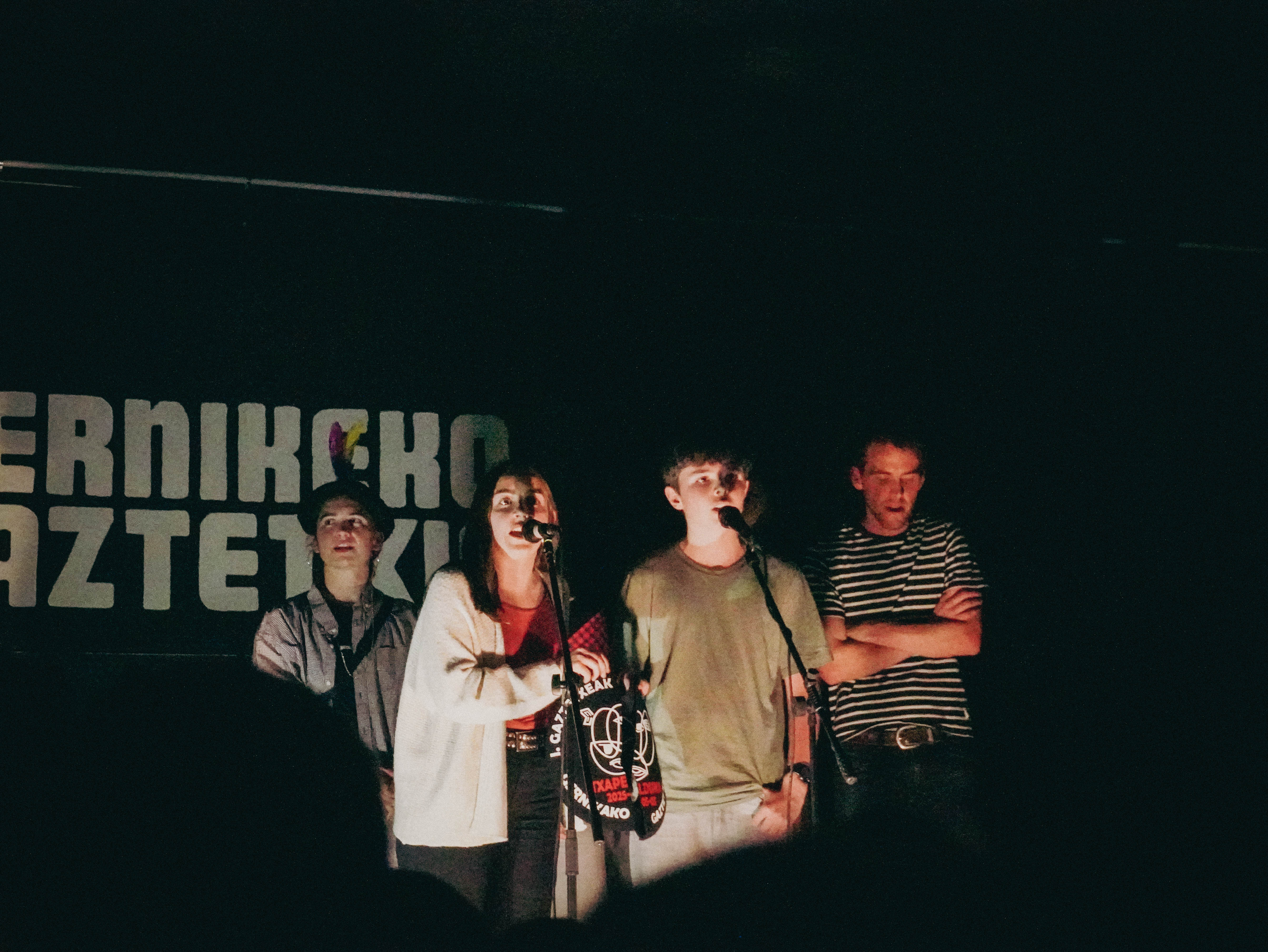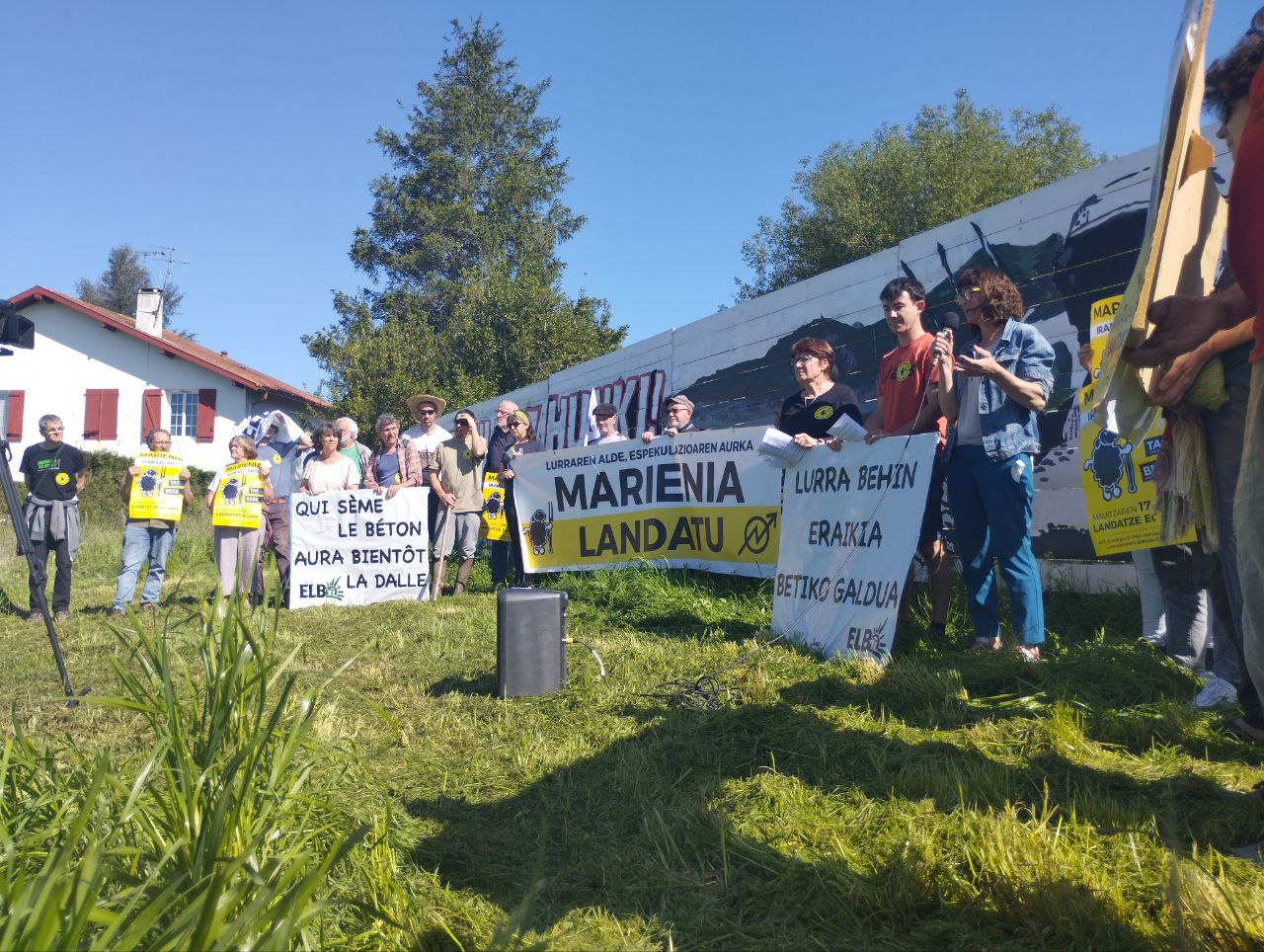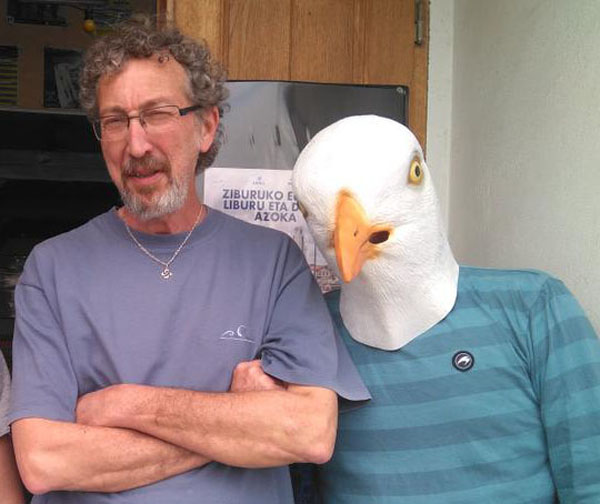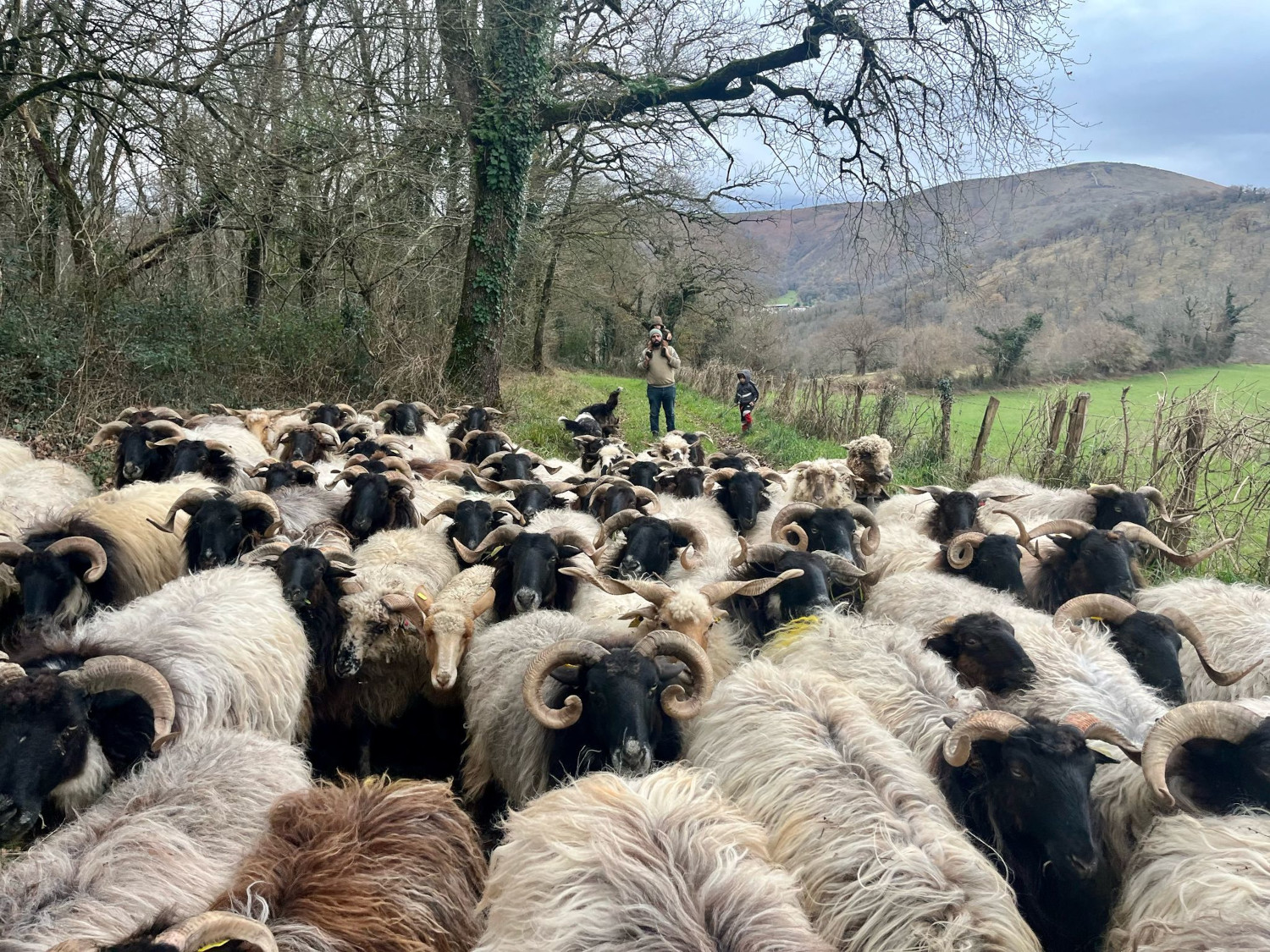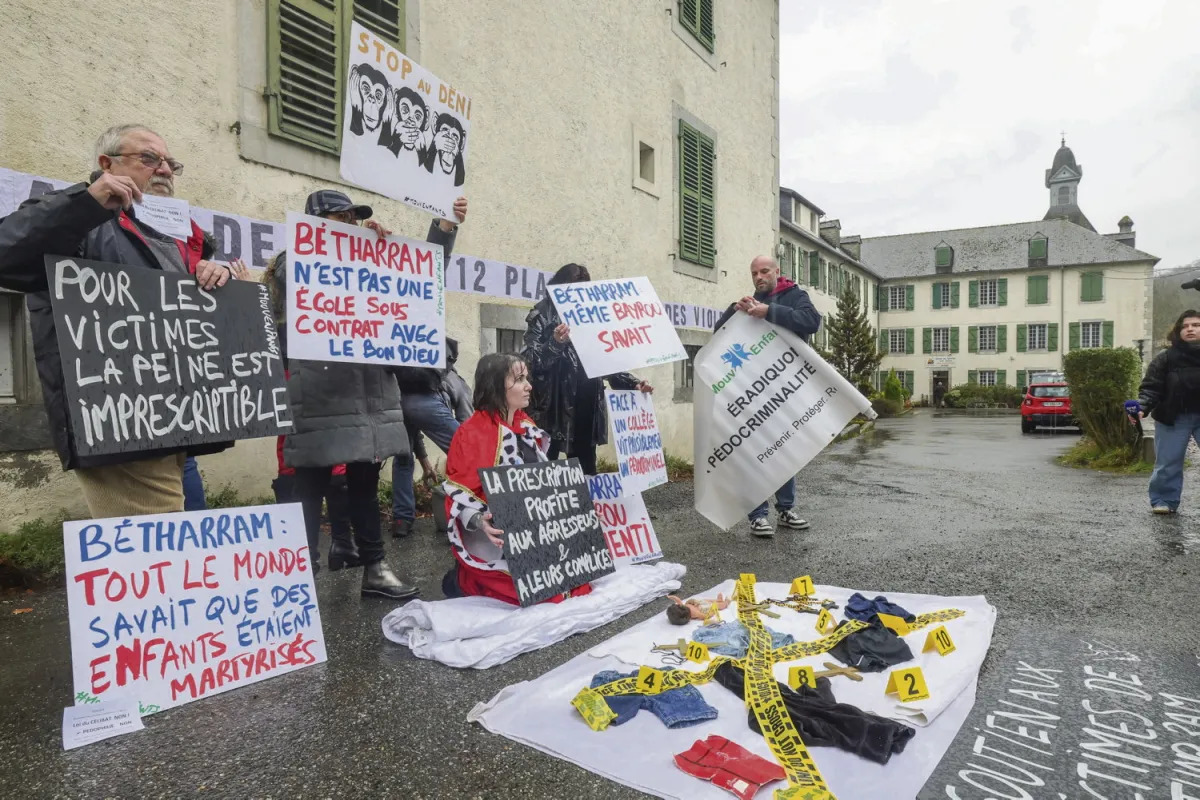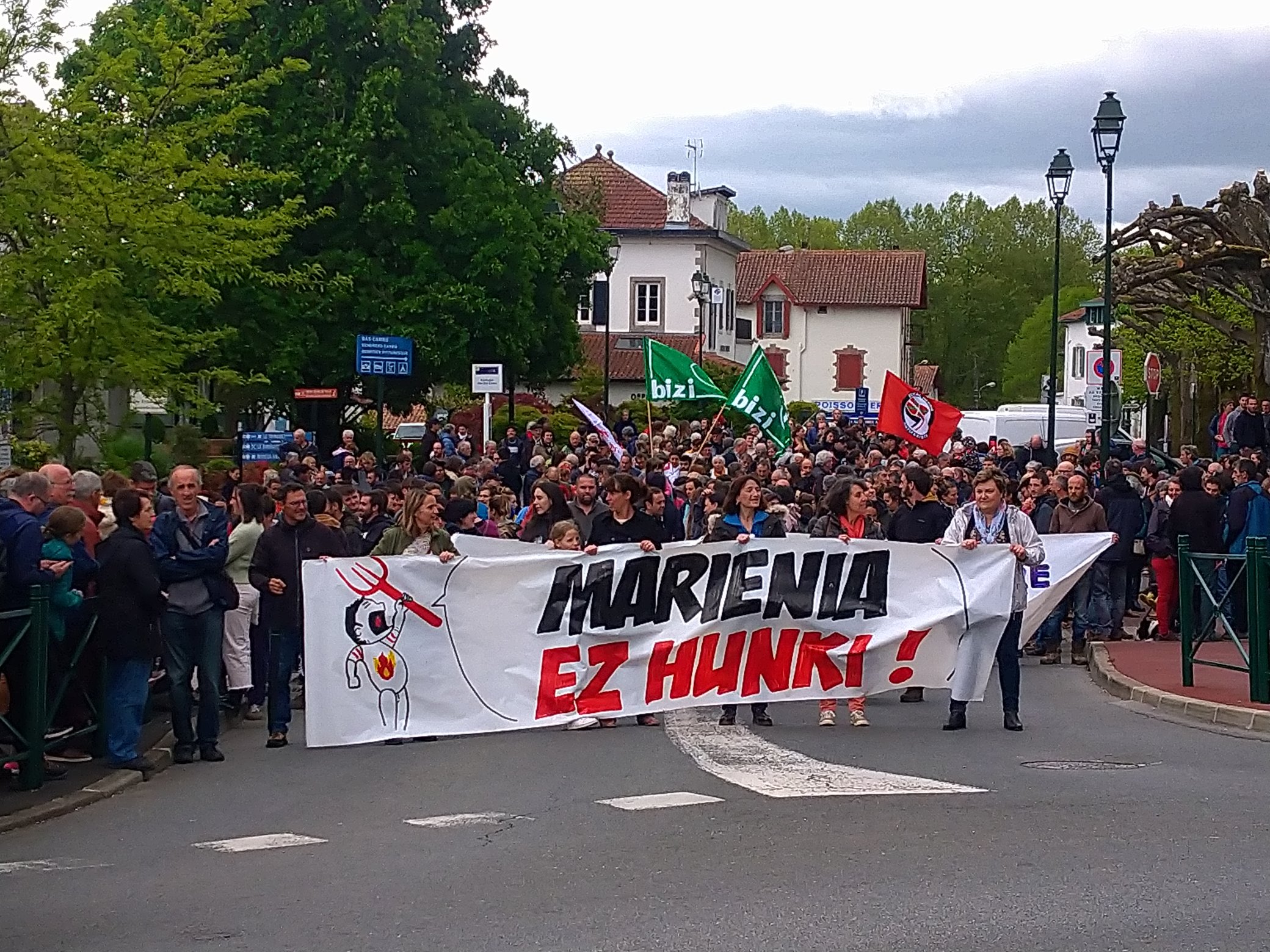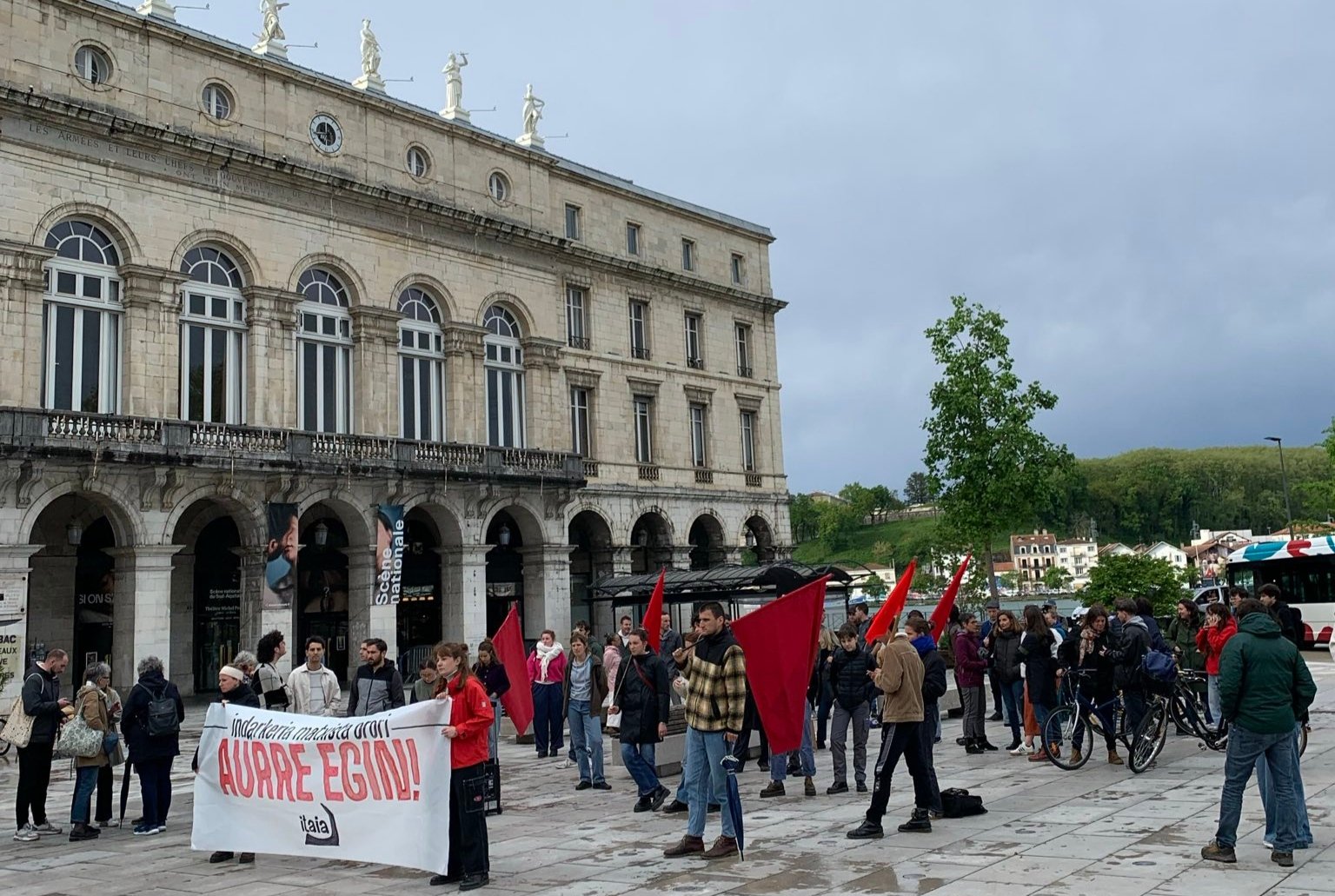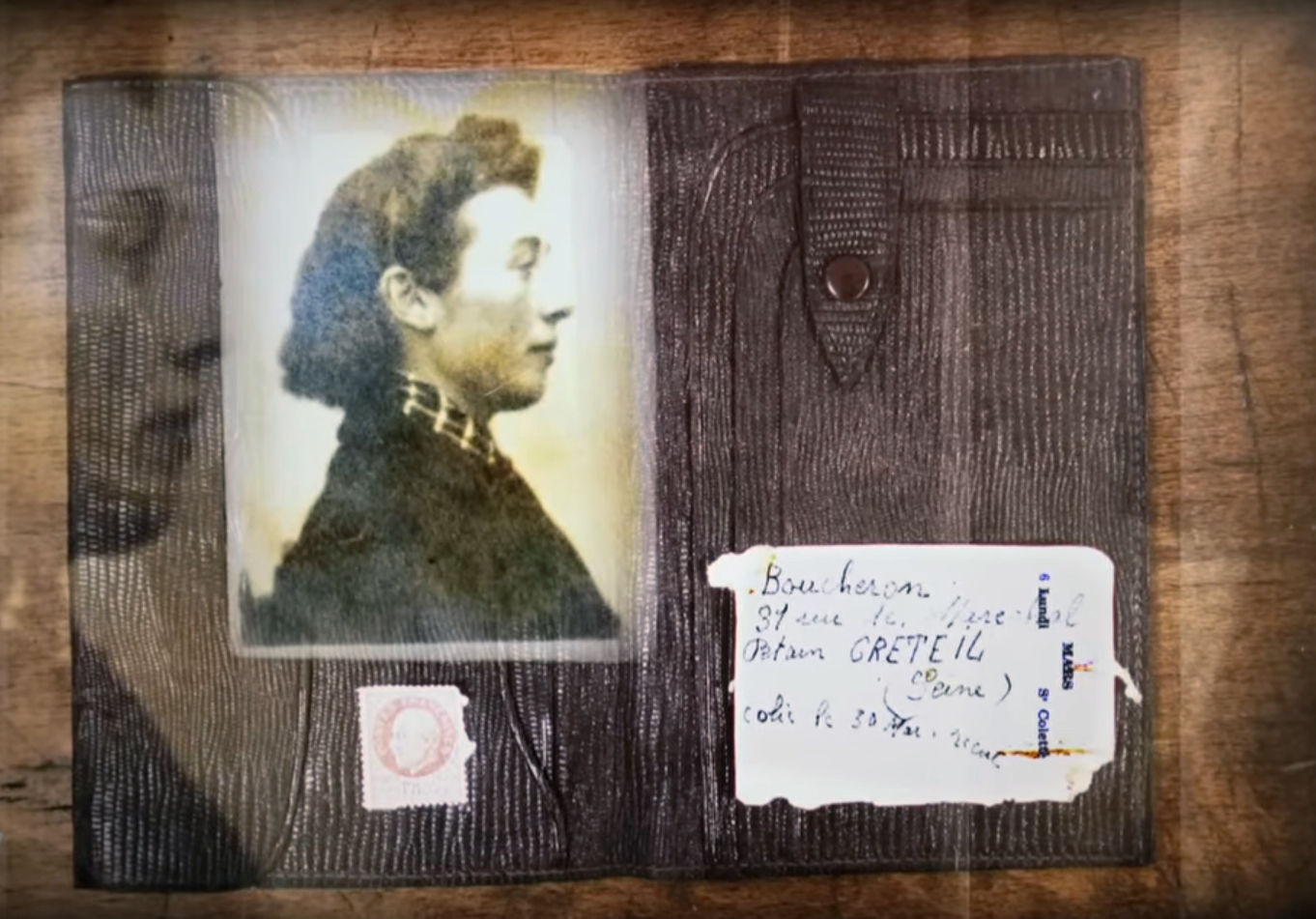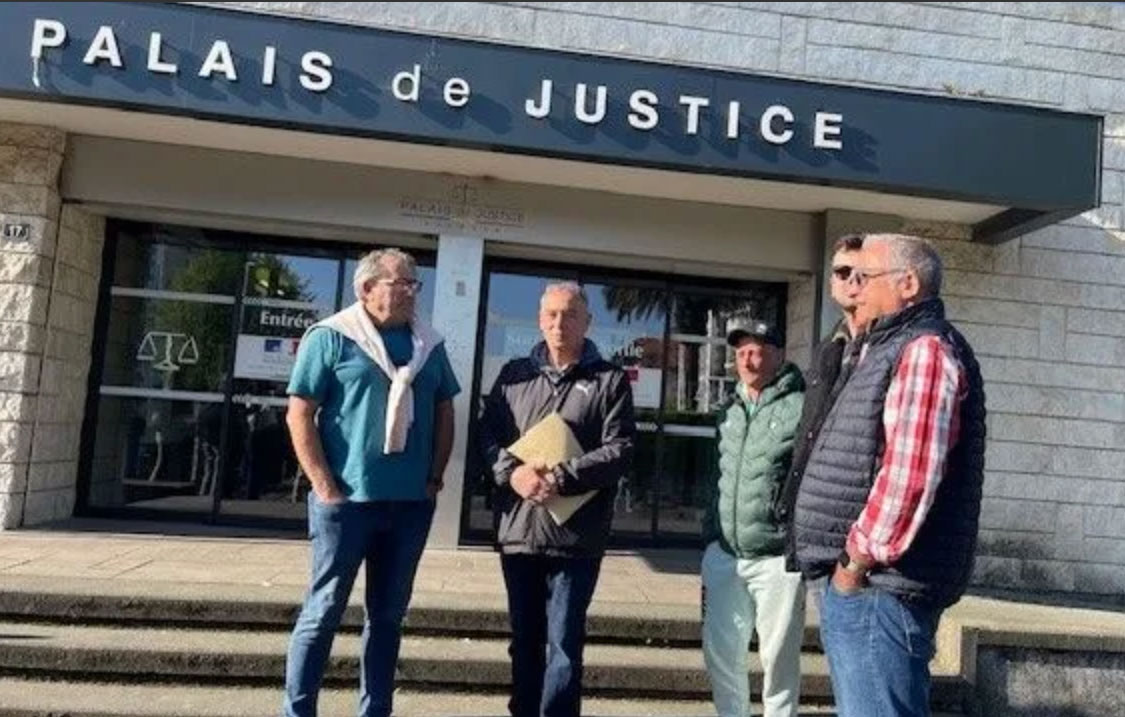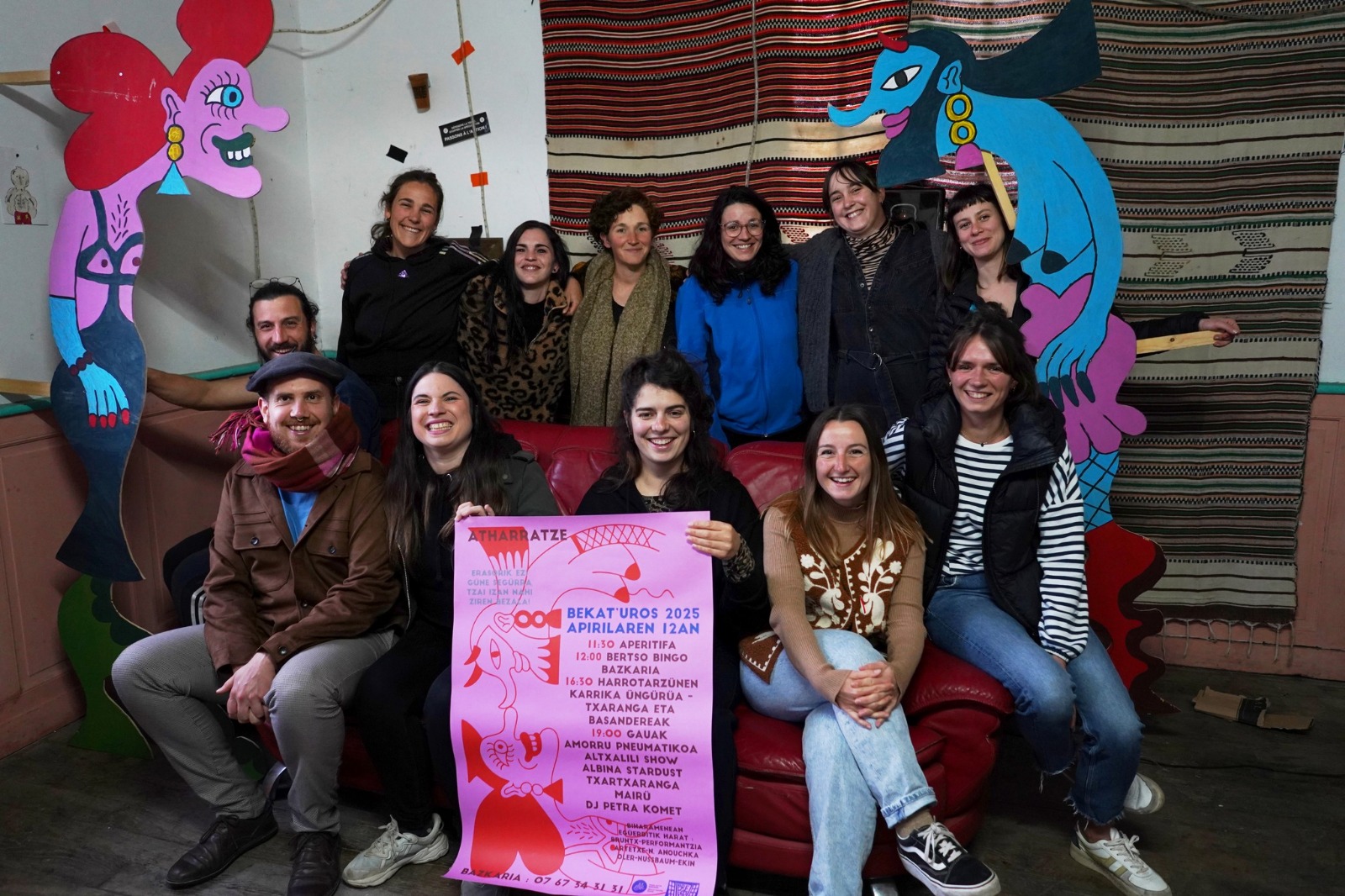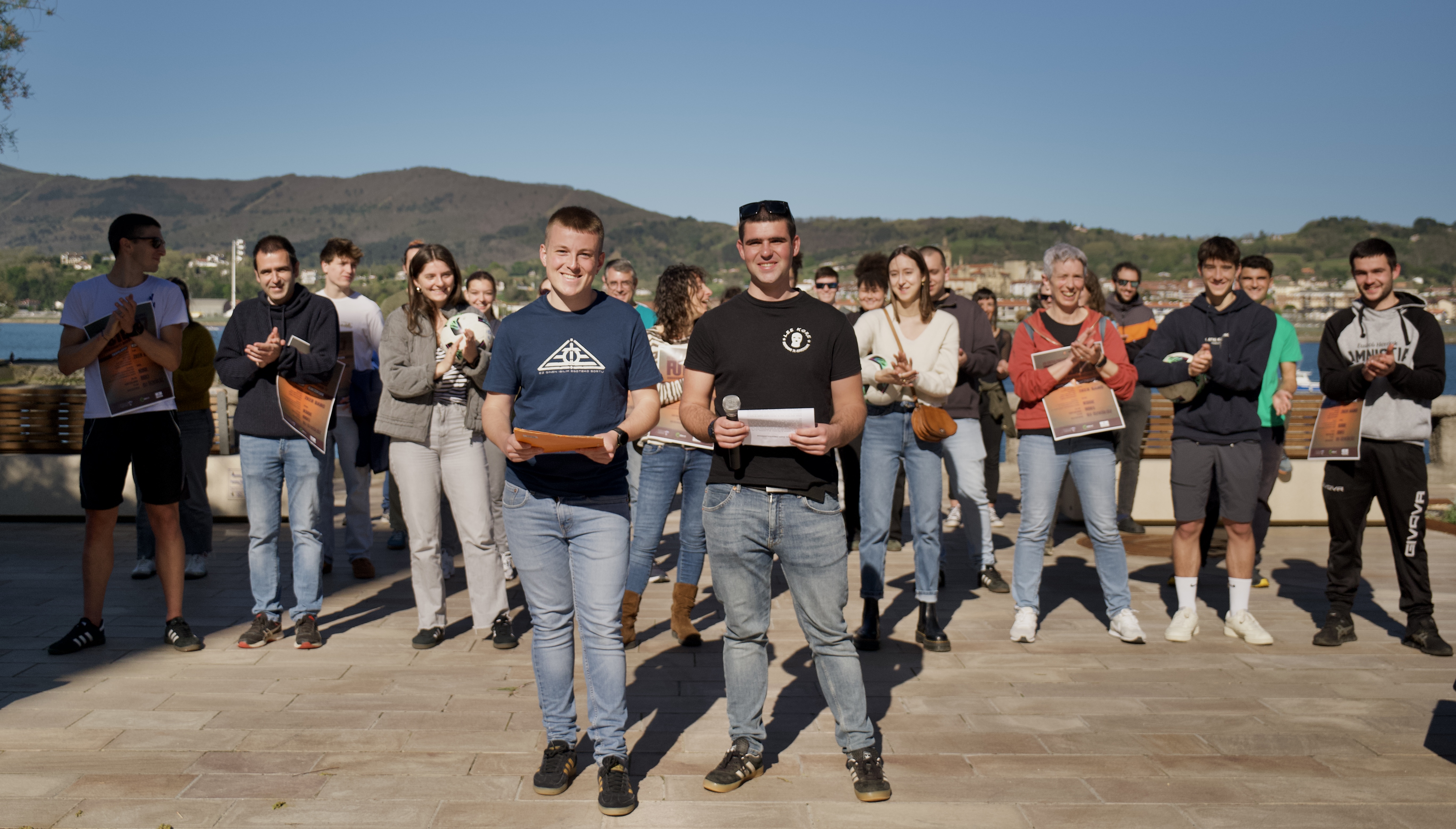"Here the song has worked as much as political militancy"
- Their identity is not clearly defined. He has done many things, several. Since the late 1960s, Gexan Alfaro has been listed in the names of the new song. Militant of great difficulty, culture with Euskera, politics with culture, knowledgeable of the history of the continental Basque Country for half a century.

Olerkari, idazle, kazetari. Kantagintza berriaren sorkuntzan esku hartu zuen, kulturarekin politikan militatu du, ikastolen mugimendua aitzinatzen lagundu du Seaskaren barnean, Elkar argitaletxearen eta Zabal liburu-dendaren sortzaileetarik izana… Ipar Euskal Herriak joan deneko berrogeita hamar urtean osatu duen historiaren jakile eta lekuko zuzena da, arduraz, pertsuz eta kantuz, Lantziritik… Etxalaira… liburuan ageri duenez.
You have considered this conversation as an enemy, with several questions. However, we get used to making enemies like these.
Yes, if we had a lot in the seminary. At the end of the year, they always existed, and at zero or because, always before! Ha, ha… Life itself, at least in part, is enemy. Each one measures itself, but the others also measure and help measure. That's always been life. And living life doesn't seem tired to me, living is pleasure. However, there are goods and evils, and normally, with the fungus, we all feel both of us and of others. But if we have a basic condition – because you mean health – if you overcome all of them, you can live with pleasure.
You have health.
Yes, I already have it, and fortunately, less evil to Life!, with capitals. In 1941, I was born in Urepel, in the farmhouse of Lantziria. We were seventeen children who lived there, twenty created! Our mother had twenty children in nineteen creatures. Most mothers in their families had many children. They say that at that time they could have touched a dozen of them. The mothers at the time were actually athletes! In the rural world, above all, it is obvious. They worked outside like men, did internal work and helped abroad: in grasses or in ferns, something surprising to the present! And Lantziria was also on the mountain, not on the top, but on the mountain nevertheless. We went to school walking down and down above for 20 minutes, running on average. From school to Lantziri, we needed half an hour when we were in a hurry or a quarter of three.
Who was Lantziriko?
Mother. His name was Mutuberria. This is what is called from Navarra, like the father, basically: Alfaro. When our parents got married, they first went to their father's home, they called the farmhouse Domingarrenea, located upstairs on the mountain. This is also the house that is always alive. Then, in Lantziria, if they didn't follow, then their mother's parents called them to see if they didn't want to come to Lantziri. And so they settled in Lantziria, a house that still lives today from agriculture and grazing.
He referred to school. The French school, of course.
Yes, it was then the only school in the village and the only language: French. Among us, on the contrary, the only language was the Basque language, as well as at home in the town, and how not in the exits and air outlets of the school. They had invented a little txotx, and we shared that: at last, the one who spoke Basque had to take it, and the one who had in his hand at the time of entering school had the sanction. Eni has also spent more than a while, of course. When we talked about Euskera in class, it gave us a lot of burros in the back. And I have also been with those great needs of donkeys in school, and also in the air intakes.
That was the ‘pedagogy’ of the time.
That is what I call military pedagogy! But that's why they didn't stop us from Euskera. We learned some French, but then, going to school, we learned better than at the local school. So our only language was Euskera. Among the citizens we spoke in Euskera, we used to overcome all those obstacles very easily.
.jpg)
"Among friends and friends, here and there, we see Euskal Herria, but for someone who has come from outside, and here and there, it is still France and Spain of long duration"
You mentioned the college.
Yes, and in our house we all pass, little by little, through the school. Some, Hazparnerat, me first. For ten years, I was sent, apparently, by someone who saw inside me some priest, the priest or the serora I don't know, and they sent me to the family they owed me. We have done so on our way. Then, two other kids made the same path, but a little less than me. I followed the path until I was 26. I spent seventeen years like this on the same road! And surely they were important years. A time when girls are globalists and always marginalised. I remember, even though it was Urepele's holidays, I can't go to others with the children, because I was a priest. I had to be away from them. That was the culture of the time.
What was the Basque atmosphere of the bishop in that culture then?
There were many Euskaldunes and many Euskaltzales in Hazparne College. We were a ttipi Basque Country. The Basque language was our language, our identity, we felt it and we kept it. There was also Manex Pagola, and we formed a group, a vasophile. Then we continued in Ustaritz, more, with more personality. And there were also Basque cures, a Piarres Lafitte, for example, the Canon, and a great linguist. There was another one that helped us and boosted us. Piarres Xarriton. I remember Lafitte's memory above all. With the students very funny in the air intakes, with an immense solitude, the story was telling, it made us smile. We always had ten, a dozen Euskaltzales around it, in Euskera. We took it with laughter, because what he had was a feasible laughter, but also the way to make him laugh, and for him we also wanted it! Ja, ja…
How did the vasquity that came from the house in its interior become consolidated?
This was reinforced by the French world, surely, because Euskera was not used in teaching, and we experienced it badly. In French we were not as good either, it has to be said, we were as we could, and therefore the French himself made the Euskaltzale lighter. Manex Pagola, Joanes Borda, Beñat Sarasola… all together from the school of Uztaritz. Crew. Our group called it "quartet."
What consequences have these seventeen years left?
I think if we didn't make that path, maybe it would be a quarrier, like a brother. But I don't have much to do that road, because that's how we've expanded our culture, we've learned a lot -- little adhesions, but a lot of things! Ja, ja...–, and we have lived the reality of Euskal Herria, it has been internalized, it has integrated into us. Seventeen years.
He left the Baiona Seminary in 1967.
Yes. They first gave Manex [Pagola] out, and then me, in a week. Di Manex out and give my discharge in writing. On the side, with my suitcase, from the Major Seminary, and as I leave, on the other hand, I see Joanes Borda and Beñat Sarasola: “What are you doing?” “I’m leaving. & '97; I have given my discharge, my matter is over here!” “Haugi, if we have an appointment with us, with the bishop, we will be able to find a way out!” “It’s not possible, but I’m going to go, even to prove that it’s not possible to rescue.” The bishop received us and we explained our case.
What did they say to him?
We wanted to be priests of Euskal Herria and, therefore, we wanted to receive training in Euskera… At the end of the day, the bishop responded in French: “C’est tout?” (Is that all? ). And then he said one thing that for me was enough. “In ce qui concerne la langue basque, je serai un comme mur!” (As for the Basque, I will be like a wall) Xutitu, I gave him my hand and salutes him: “Goodbye, monsignor, I have nothing to do with you!” And I left, leaving Joanes and Beñat there. The bishop instructed both to make a “psychological change”, to that lower part of France, to the different cities of the departments of Cher and Vierzon, for one year, to follow the training. When they came back, the same thing. They saw that they didn't change ideas, so they also kicked them out.
You had to make a new life…
There you come, like in front of the sea. You're not a prepared person and you have to do it like everybody else, find a job, start working, and then change your goals: “I’ve come from a great family!” and you focus on a family. When I was young, I started going out on the mountain, and so I met my lady. We wanted to walk in group on the mountain, make an excursion, and then in any village we stayed in the hostels and sang with our songs. We lived in a great atmosphere.
I had already started the song ...
There were the Soroa brothers, yes, Robles Arangiz. Then Ez Dok Amairu. We met Mixel Labegerie, and Lourdes Iriondo, and everyone. There was an awakening in the culture and we felt it existed. I, above all, because I liked writing, although I did some poems like verses, I was also a journalist for several years, and before that, being in the seminary, I wrote in Zeruko Argia, also in Herria… I liked writing, and there I healed that there was a rebirth of the Basque country. We were happy to participate.
And also ETA.
Yes, it was also his ignition in the South, and here it affected. From the point of view of the idea, I mean. I was a youth, although I had collaborators, I had shelters… That time, the director of the Baiona seminar — Ariztia, the Saratarras — told me: “I only thought through ETA!” I was very attached to the Basque, and there I was, which was the North and the South. I couldn't bear it, the sick! We were normally stuck in the Basque movement. But without songs I don't know if there was going to be a cultural revolution here, and maybe less political. Of the more, the song had a great influence. We organized recitals — I was involved in the organizers — and I was meeting young people. We organized ourselves in different places, we brought singers from the South, always along with those from the North, to show the people here: “Look, if the Basque is in the South, they are also Basques there, as we are.” It was also our policy. A lot of people were moving. Here singing has worked as much as political militancy. Spreading ideas, making citizens live, feeling the vasquity and living with joy. All this has been done through singing.
Do the people of the Northern Basque Country know the South better than the people here?
It's possible. I explain it by saying how the most efficient part of Euskal Herria is there, we have always been to it, we have taken its influence, as is normal. Surely. After Franco's death, for example, he opened up more chances of crossing the Basques on both sides.
.jpg)
"Elkar was born thanks to Manex Pagola. When the editorial Goiztiri de Enbata stopped, Manex did not give us peace: "We need to create an editorial!"
What was the creation of the Elkar publishing house?
The sequence of the previous road! In 1972, we founded Elkar among friends. We continued to do what we did until then, when we founded the editorial in Baiona. It was founded thanks to Manex Pagola. When the editorial Goiztiri de Enbata stopped, Manex did not give us peace: “We need to create an editorial!” We started, we gave names, it was a proposal. Editor of Basque Books and Songs, Elkar. The Zabal bookstore was opened by Joseba Jaka and Jokin Apalategi. And after a few years there was also Jose Mari Sors. I also entered later as a worker at the Zabal bookstore.
Joseba Jaka was a great agent on both sides.
The Zabal cultural association was set up in 1972 and we had a magazine with the same name. When we started naming the store, we gave it the magazine. There we all came together: Battitta Larzabal, Jakeline Idiart, Joseba Jaka, Jokin Apalategi, Maite Idirin, Joxe Mari Sors, Paulo Iztueta… and others. We also suffered attacks, as the Zabal bookstore was cracked. Previously, Mugalde was cracked in Hendaia and Navarre in Biarritz. Also a French library in San Juan de Luz.
Explosions in bookstores. In adjacent times, the GAL ports.
Pannecau Street from the Zabal store was unable to live. So people moved very well. On previous occasions, a large number of refugees were observed in the accommodation. When the GAL broke out, everyone was hiding. The GAL attack also took place at the Les Pyrénées hostel on this street. They brought terrible terror. This ended when the French government led the large number of refugees living in Iparralde to the other side. That was the treatment between the two governments. Otherwise, the GAL would not have stopped.
An attempt was made to create the ikastola in Baiona with enthusiasm and give continuity to the ikastola.
So we lived there, going where the question was. That was our militancy, without that we weren't goodness. It was my life, culture was needed. The ikastolas have been created, therefore, to carry them forward. And then, first, creating the College Xalbador and the Liceo in Kanbo was a big step. And there, too, a small group started. The first school was opened in Baiona, with ten, a dozen children. Very little. From there we went to Xalbador College and then continued to liceo. The Auzolan has been immense, because here, in the same North, and also with people from the South, it was coming to help.
There is something to mention among the people who came to help you...
We had, above all, a Biscayan professor, Gillerto Etxebarria. Through it, dozens of people came on weekends to Xalbador School to help us, and there we lived an incredible atmosphere. A special case. The people of Iparralde, the officers helped us a lot. And then when you ask the bill or the account: “No, that’s for your help.” They left us their job for free. Amazing. This college aroused great solidarity. There were the Urbistondo brothers of Sara, Henri Dutournier and others… Many were the ones who helped us.
The seed they sowed has been harvested.
We have made the way, we have made it, and like all the trees, ours has also borne fruit. Our work has also borne fruit, there would be no continuity. And seen, in spite of everything, how the ikastolas have spread to almost many villages in Iparralde, which was also our dream, and the schools that have been created, which are now going to make the fifth, the tree of Sehaska and the ikastola, has surely borne fruit. For the elderly, for the Basque, with fungi, the language is our main sign of identity, the Basque, and the culture that accompanies the Basque, and a related policy: that is, the politics of the Basque Country. All of them are interrelated. It's the same family.
Did that policy lead him to prison?
I think so. We opened the door to a refugee, who anywhere was a contribution from ETA...
What memories do you have of the prison period?
I also have memories of two kinds. I was very good. At home they were worse. She alone at home with our four children. It is true that this gave rise to a great deal of support, I am right in jail. I was writing to my family in a verse. “In Nihaur prison, you in the People, with inmates... We will live solidarity with great joy! Do not be discouraged, go ahead, with Basque ideas… We have been touched by freedom, once with Peace!” I took time to make the reflection, the bertso, the reading, the singing…
Jesus is still guided by his writing.
Yes. The most amazing discovery I've made in my life, the most beautiful, I'm going to say, has been the knowledge of Jesus' life. What it has been, what it has been, what it has done and what has finally taken the men of their religion. One of the instructions is amazing. If we did what that puts and what it does, we would be in the flower. But Jesus is not fashionable because the Church has not done its job. Jesus Christ has not proved who he is and what he is. The Church, the institution, follows a completely opposite path: it is the financial world, it is the system, it is power and history. That is why my instruction is Jesus, and I am glad about that.











